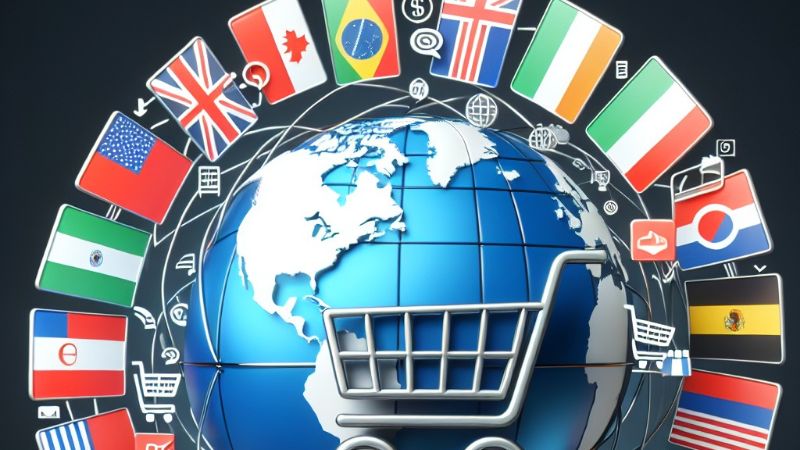
In today’s globalized market, e-commerce businesses are faced with the challenge of reaching a diverse customer base across different languages and cultures.
Machine translation plays a crucial role in overcoming this challenge by enabling businesses to translate their content quickly and efficiently.
With machine translation, companies can offer their products and services in multiple languages, increasing global reach and eventually sales.
Moreover, machine translaton helps e-commerce businesses to maintain cost-effectiveness, reduce operational costs, and ensure consistent terminology usage between translated content.
However, it is essential to note that machine translation may lack the subtle cultural nuances and idiomatic expressions found in human language.
Therefore, human post-editing is often necessary to ensure that the translated content is accurate, relevant, and effective for the target audience.
Value of e-commerce localization
In e-commerce localization, machine translation is useful in translating product descriptions, category names, and other marketing materials into different languages.
This enables businesses to reach a wider audience and increase their online presence globally.
Cultural sensitivity is key to understanding target audiences for successful e-commerce. Other than that, there are four main things to consider: language complexity, technical requirements, post-editing, and quality assurance.
Different languages have different levels of complexity, and such must be considered when translating content. Naturally, the machine translation tool must meet the business’s technical requirements.
It is widely acknowledged that human post-editing is still necessary to ensure machine translation accuracy, relevance, and effectiveness. And it is best exercise to regularly review and test translated content to ensure it meets quality standards.
Where machine translation is most useful
Website localization. Translate website content into different languages to reach a global audience.
Product description translation. Translate product descriptions to increase online engagement and sales.
Customer support. Use machine translation for customer support to provide multilingual assistance.
Marketing materials. Translate marketing materials such as brochures, flyers, and social media posts.
E-commerce platforms can also use machine translation to offer their services in multiple languages, which increases their global reach and potential for sales.
By leveraging machine translation, e-commerce businesses can expand their customer base, increase online visibility, and drive sales globally.
Human post-editing and quality assurance plays a major role in ensuring the effectiveness of these translations.
Machine translation and the human touch
Machine translation plays a major role in e-commerce localization by enabling businesses to reach a global audience at costs that make it worth the investment.
To ensure that it is attuned to cultural sensitivity, language complexity, technical requirements, and quality assurance, human post-editing is a must.
E-commerce businesses should use machine translation in conjunction with human post-editing and quality assurance to create effective and engaging content for their target audience.
By doing so, they can increase their global reach, drive sales, and establish a strong online presence. With this, brands can identify potential markets and employ strategies that connect with this audience the most.
Machine translation is also useful for translating product reviews, ratings, and other customer feedback to provide a more comprehensive understanding of the product or service.
This enables businesses to make data-driven decisions and improve their products or services based on customer feedback.
Additionally, machine translation can be integrated with social media platforms to translate posts, comments, and messages in real-time, enabling much-needed engagement and potential for conversion.
Furthermore, machine translation can be used to translate e-commerce platforms’ documentation, user manuals, and other technical materials into different languages to ensure that customers can easily understand the platform’s features and functionality, reducing support requests and increasing customer satisfaction.


